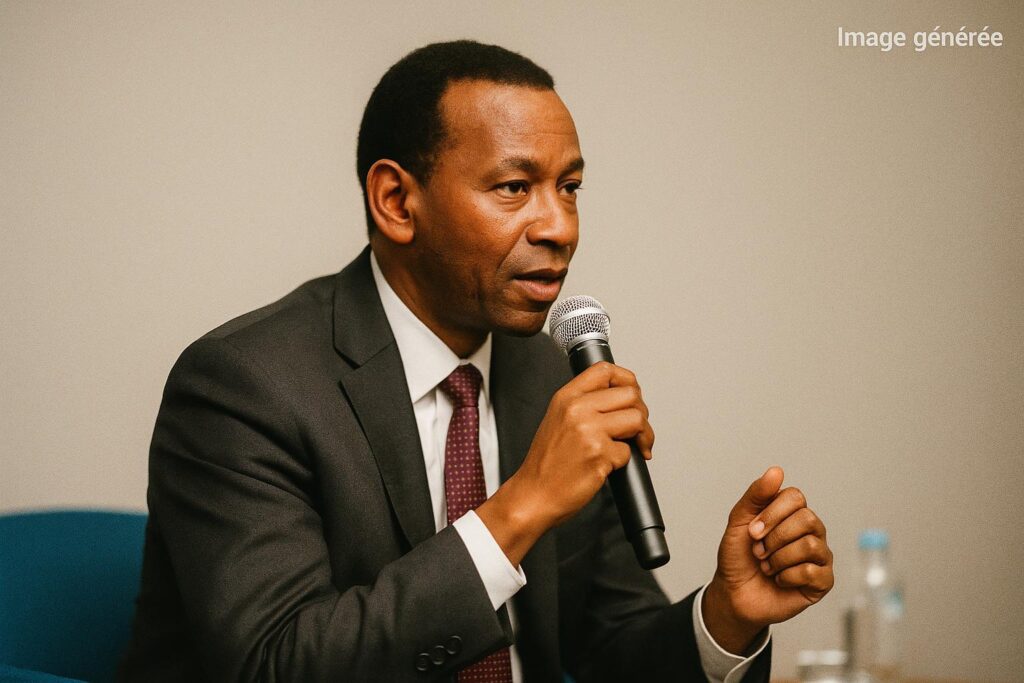Tumaini, the Common Thread of a Regional Mediation
Launched in Nairobi in 2023, the Tumaini process aims to bring together movements excluded from the 2018 revitalized agreement and to strengthen South Sudan’s transition. The Swahili word “tumaini” – hope – reflects the ambition to fill the gaps left by previous negotiations.
A Pause that Raises Questions for Negotiators
Since February 7, talks have been adjourned for the third time. Officially, Juba says it wants to finalize two roadmaps intended to clarify the end of the transitional period. In the absence of a resumption date, concern is growing among civil society and partner diplomatic missions.
The Government Delegation’s Firm Position
In early March, the head of the South Sudanese delegation, Kuol Manyang Juuk, declared Tumaini “defunct,” arguing that the opposition no longer had “any valid case.” The idea, contained in a draft proposal, of a collegial leadership council was even likened to an attempted “coup.”
Guyo: “Hope Never Dies”
Reached in Nairobi, Deputy Mediator Dr. Mohammed Ali Guyo dismissed any notion that the process is dead: “The Tumaini Initiative was conceived to bring good news to the people of South Sudan. Hope never dies, and neither does Tumaini,” he insisted, recalling the political support secured across the region.
Official Channels vs. Media Announcements
The diplomat expressed surprise that the rejection was voiced in the press rather than via a formal note verbale: “Protocols are clear; any position must be communicated through the agreed channels.” For Nairobi, this breach underlines the need to restore trust between the delegations.
The Security Question in the Background
The arrests at the end of January of former Petroleum Minister Puot Kang and SPLM-IO officials, following the Nasir incident, have chilled the atmosphere. The opposition fears a tightening of security measures, while the government cites the need to protect public order. These tensions have prolonged political paralysis.
Roadmaps Awaited but Criticized
The two documents prepared by Juba focus in particular on unifying the forces and preparing for elections scheduled for December 2024. The opposition warns of the risk of merely extending the status quo if an independent audit of the security process is not accepted.
Kenya, an Arbiter Under Pressure
By hosting the talks, Nairobi asserts its role as a security pivot in East Africa. Kenyan authorities deny any complacency toward a possible “military wing” of the United People’s Alliance — an accusation leveled by Juba and deemed “without documented basis” by the mediation.
An Ecosystem of International Support
The African Union, IGAD, and several bilateral partners continue to provide discreet logistical funding. Washington, Brussels, and Beijing share a common interest: avoiding the collapse of an oil-rich country at the crossroads of regional migration and trade flows.
Public Perception: Measured Skepticism
In Juba, as well as in the displaced persons camps of Bentiu, the suspension fuels frustration. “We want schools and roads, not communiqués,” said displaced resident Mary Nyaboth by phone. Nevertheless, youth organizations continue to advocate for Tumaini, seen as more inclusive than previous negotiation cycles.
Economic Impact of a Stalemate
Without progress, oil production remains capped below 170,000 barrels per day, far from the 350,000 barrels before the war. The Bank of South Sudan estimates that each lost quarter costs 3% of potential GDP, exacerbating imported inflation and the depreciation of the pound.
Security Stakes for the Sub-Region
The Great Rift Valley is a reservoir of cross-border tensions. A lasting peace in Juba would help curb the flow of small arms to the DRC and Sudan, while the Mombasa–Juba trade corridors could boost East African Community integration.
The Experts’ Voice
According to Kenyan analyst Mwangi Kariuki, “the window of opportunity is closing fast.” He recommends the urgent establishment of a monitoring committee with graduated sanctions to prevent either party from resorting to a politics of the empty chair.
Crisis Exit Scenarios
Three main options emerge: an interim security agreement, the convening of an inclusive forum before June, or a technical postponement of the elections. Each requires substantial financial and political commitment, which the mediation wants to anchor to explicit regional guarantees.
Shared Responsibilities
Dr. Guyo calls for “patriotic compromise.” He stresses one principle: no solution can be imposed without the consent of the parties themselves. South Sudanese actors retain the final say, but the region provides the framework to turn the current deadlock into a springboard toward stability.
The Horizon of a Necessary Consensus
With eight months to go before the theoretical electoral deadlines, reviving Tumaini seems unavoidable. If Kenyan diplomacy holds its mediation line and the parties agree to return to the table, hope — true to its name — could finally turn into tangible peace.


